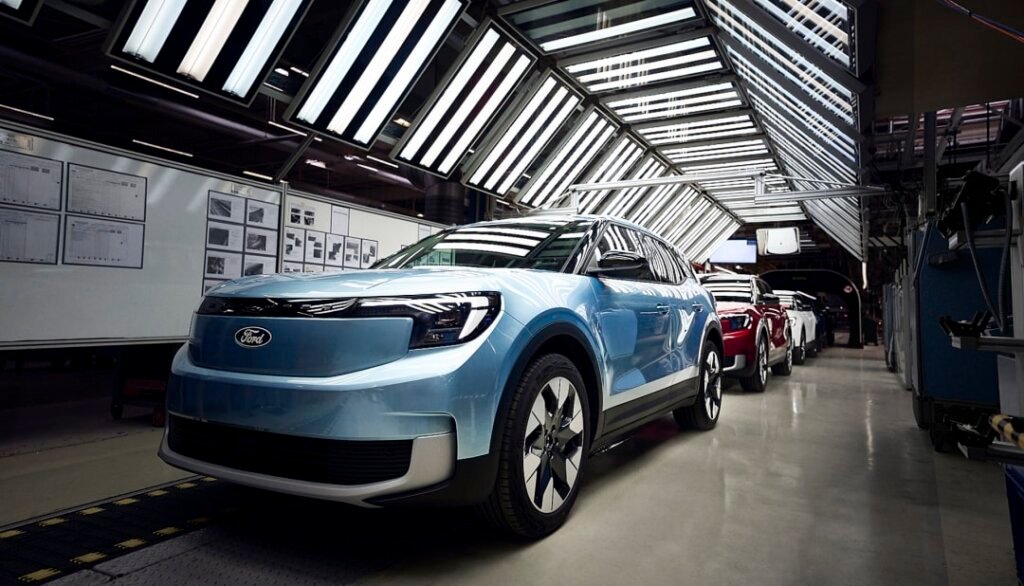Trump Ends EV Tax Credit, Ford and GM Step In With $7,500 Incentives
Washington D.C. – In a significant move, the Trump administration officially ended the federal $7,500 EV tax credit on September 30, upending a subsidy that had supported electric vehicle buyers for over 15 years. However, Ford and General Motors are swiftly stepping in to mitigate the impact, introducing innovative dealer programs that will effectively extend a $7,500 incentive to consumers, ensuring that the transition to electric vehicles doesn’t face an abrupt financial cliff.

2024 Chevrolet Equinox EV charging port. — Source: GM
Ford and GM’s Creative Workaround for EV Incentives
Both automotive giants have rolled out programs to their retailers, utilizing their financing arms to keep the $7,500 incentive alive. Here’s how the workaround functions:
- Automaker’s Financing Arm Initiates Purchase: Ford Credit or GM’s financing division will make down payments on EVs already in dealer inventory.
- Claiming the Federal Credit: By making these down payments, the automakers’ financing arms themselves qualify to claim the $7,500 federal tax credit on those specific vehicles.
- Lease Deals with Integrated Subsidy: Dealers will then offer lease agreements on these pre-subsidized cars to buyers. The $7,500 tax credit is effectively factored into the lease terms, lowering monthly payments for consumers despite the direct federal credit no longer being available for new purchases.
GM confirmed to Reuters that it “worked with our GM dealers on an extended offer for customers to benefit from the tax credit for leases.” Ford will provide “competitive” lease payments through Ford Credit until December 31, offering a temporary buffer for consumers.
Ending Tax Credits: Impact on a “Fair Market”
President Trump’s rationale for discontinuing these incentives is rooted in the belief that subsidies distort a “free and fair market” – a hallmark, he insists, of a healthy capitalist economy. However, critics argue that this stance conflates equality with equity. They contend that without subsidies, many buyers, unfamiliar with electrified vehicles, may be reluctant to “branch out” from internal combustion engine (ICE) cars.
Automakers themselves predict slow EV demand following the end of the tax credit, largely because consumers tend to stick with what they know. Subsidies, it is argued, helped to level the playing field, addressing the “uneven floor” in the auto industry caused by unfamiliarity and higher upfront costs of EVs. It remains unclear if other automakers plan to offer similar incentives, but at least one state has indicated plans to introduce its own EV incentives.
This strategic move by Ford and GM highlights the critical role incentives play in accelerating EV adoption and the industry’s agility in adapting to sudden policy shifts to maintain market momentum.
Also Read – Dodge Charger Daytona SRT Banshee Canceled: Electric Hellcat Successor Is DOA




Pingback: Hyundai Kona 2026 Electric Cuts Top Trims, Leaves Only Base SE—A Win For Nissan Leaf - Mechhelp